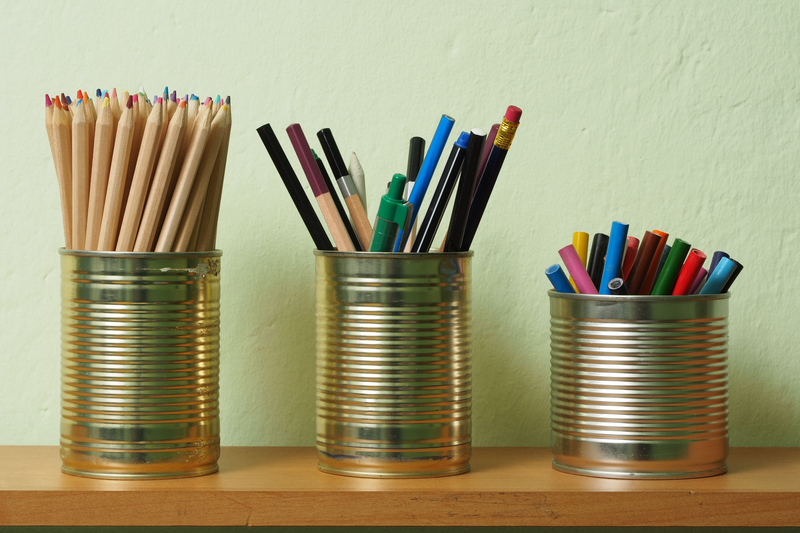Quick Brick and Rubble Disposal
Posted on 16/11/2024
Understanding the Importance of Quick Brick and Rubble Disposal
Effective waste management is crucial, particularly in construction and renovation projects where brick and rubble can accumulate rapidly. Quick brick and rubble disposal is essential not only for maintaining a safe and clean work environment but also for enhancing the overall efficiency of the project. Efficiently disposing of these materials ensures that the site remains navigable and reduces potential hazards associated with construction debris.

Methods of Quick Brick and Rubble Disposal
1. **Hiring Professional Waste Removal Services**: One of the most effective ways to handle quick brick and rubble disposal is by hiring professional waste removal services. These companies have the necessary equipment and expertise to remove large volumes of construction debris quickly and safely.
2. **Using Skip Bins**: Skip bins are highly versatile and come in various sizes, making them a convenient option for disposing of bricks and rubble. By placing a skip bin on-site, workers can immediately discard waste materials, ensuring the area remains clean and organized.
3. **Recycling and Reusing Materials**: Whenever possible, bricks and rubble should be recycled or reused. Many construction materials can be repurposed for other projects, reducing overall waste and minimizing environmental impact. For example, crushed bricks can be used for landscaping or as a base for new construction.
4. **On-Site Crushing and Screening**: Investing in on-site crushing and screening machinery can significantly speed up the disposal process. These machines break down large pieces of rubble into smaller, more manageable pieces that can be easily transported or repurposed.
Quick Disposal Tips
1. **Plan Ahead**: Create a detailed plan for waste disposal before beginning any construction or renovation project. Identify the types and volumes of materials that will be produced and determine the best disposal methods.
2. **Segregate Waste**: Separating different types of waste (e.g., bricks, concrete, metal) will streamline the disposal process. This makes it easier to recycle or dispose of materials appropriately.
3. **Regular Clean-Up**: Implement a regular clean-up schedule to prevent the accumulation of waste. Daily or weekly clean-ups can keep the site organized and reduce the amount of debris that needs to be disposed of at once.
4. **Utilize Local Resources**: Contact local recycling centers or waste management facilities to see if they accept construction debris. This can be a cost-effective and environmentally friendly disposal option.
Pros and Cons of Quick Brick and Rubble Disposal
**Pros**:
1. **Safety**: Regular and quick disposal of construction debris minimizes the risk of accidents and injuries on-site.
2. **Efficiency**: A clean and organized worksite enhances the overall efficiency of the project, allowing workers to focus on their tasks.
3. **Environmental Benefits**: Proper disposal methods, such as recycling, reduce the environmental impact of construction projects.
**Cons**:
1. **Cost**: Hiring professional services or investing in disposal equipment can be expensive.
2. **Time and Effort**: Organizing and implementing a disposal plan requires time and effort, which can be challenging in fast-paced construction environments.

Takeaways
1. Quick brick and rubble disposal is essential for maintaining a safe and efficient worksite.
2. Various disposal methods, including professional services, skip bins, recycling, and on-site machinery, can simplify the process.
3. Planning and regular clean-up schedules are crucial for effective waste management.
4. While there are costs associated with quick disposal, the benefits of safety, efficiency, and environmental responsibility outweigh the downsides.
Conclusion
Quick brick and rubble disposal is a critical aspect of any construction or renovation project. By understanding the importance of efficient waste management and implementing appropriate disposal methods, you can maintain a safe, clean, and productive worksite. Although there are costs involved, the advantages in terms of safety, efficiency, and environmental sustainability make quick disposal an indispensable part of modern construction practices. By planning ahead and utilizing available resources, you can streamline your clean-up process and contribute positively to your overall project success.
Latest Posts
Quick Brick and Rubble Disposal
Purchasing Real Estate in Richmond
Living in Richmond: Local Insights
Smart Tips for Richmond Real Estate Investment
Discover the Delights of Richmond: A Must-Visit London Suburb





